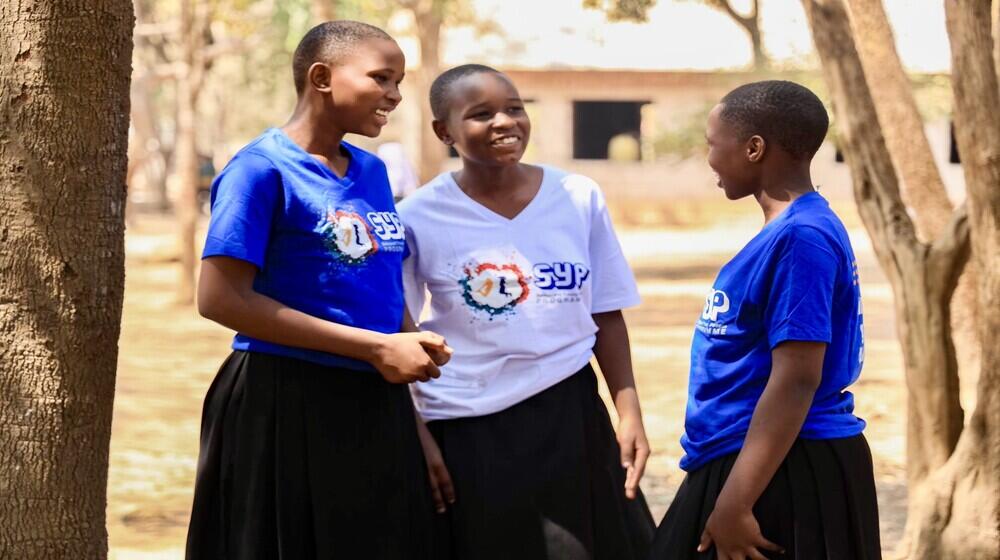Opinion Editorial on the occasion of World Population Day 2024
Tanzania's population has been on a consistent upward growth trajectory since the first census in 1967. Over the past 55 years, the population has grown from 12.3 million people to 61.7 million in 2022. This growth, primarily fueled by high fertility rates, presents a double-edged sword for the nation; potential challenges in the absence of strategic investments - or opportunities for propelling the country towards achieving its national development aspirations.
Tanzania's population is projected to double in just 22 years, reaching approximately 123.4 million people by 2044, at the current growth rate of 3.2%. This rapid growth can bring both opportunity and formidable challenges; straining resources, hampering economic progress, and exacerbating the dependency ratio – currently standing at 87 dependents per 100 working-age individuals. This places an immense burden on the economy and social services, diverting resources from crucial investments that could spur job creation and overall development.
Our collective future depends on how we think about and respond to the ties between population and development. The theory of quantity-quality trade-off underscores the importance of addressing this issue as it hypothesizes that larger families, with limited resources, may struggle to invest adequately in each child's well-being, potentially impacting their quality of life. This highlights the imperative for strategic and focused interventions in education, healthcare, and family planning, ensuring that the nation's human capital is nurtured and empowered.
However, Tanzania's rapidly growing population also presents a golden opportunity. With 60% of the population comprising young people under 24 years, the nation's youthful demographic can trigger a demographic dividend - a period of accelerated economic growth resulting from a larger workforce and increased productivity. But demographic dividend is not automatic; it necessitates building human capital through deliberate investments in employment, education, and health to be realized.
In 1969, the founding father of Tanzania, Julius Kambarage Nyerere, famously proclaimed "Kupanga ni Kuchagua", a Kiswahili phrase meaning "to plan is to choose". This profound statement underscores the critical role of strategic planning in shaping a nation's future. Tanzania remains committed to making strategic investments in its people - with the ongoing development of the Tanzania National Vision 2050 offering a unique chance to prioritize investments in human capital that will ensure the country reaps bountiful dividends for future years to come.
By equipping young people with quality education and relevant skills, Tanzania can cultivate a productive workforce that drives innovation and economic advancement. Additionally, creating a conducive environment for job creation and entrepreneurship is essential to absorb the growing labor force and reduce unemployment.
Improving healthcare and family planning services is equally important. By empowering women and couples with reproductive choices and ensuring access to quality healthcare, Tanzania can lower fertility rates and improve maternal and child health outcomes, ultimately contributing to a healthier and more prosperous society. According to the World Bank’s recent Tanzania Economic Update 20, shifting to a low fertility scenario could lift six million people out of poverty by 2050.
Unlocking the power of gender equality is another key pillar. Too often, women are sidelined from decision-making. Empowering women and girls through education, economic opportunities, and social participation not only enhances their well-being but also fosters inclusive and sustainable development.
Addressing the challenges and seizing the opportunities presented by Tanzania's growing population necessitates a multi-faceted approach. At the community level, improving access to healthcare, especially reproductive health services, and raising awareness about family planning are crucial steps. Evidence indicates that every $1 invested in family planning, can save governments up to $6.
At the policy and decision-making level, a comprehensive understanding of population dynamics and their impact on the economy and quality of life is paramount. Crafting policies that promote sustainable development, prioritize human capital investment, and address gender disparities is essential.
When a population has access to quality healthcare, ongoing education, gender equality, women's empowerment, and the ability to contribute to economic growth, substantial national economic benefits can be realized, leading to the achievement of a demographic dividend.
UNFPA, the United Nations Population Fund, collaborates with the Government and partners to invest in the nation's youth, particularly to enhance their health and education. Catalyzing the development of optimal human capital will unlock Tanzania’s full potential, paving the way for sustainable growth and prosperity.
Amidst a rapidly growing population, Tanzania's prosperous future is intertwined with the decisions made today. Striking a delicate balance between quantity and quality, investing in human capital, and embracing a multi-sectoral approach can transform Tanzania's demographic landscape into a powerful engine for sustainable development.
The possibilities for tomorrow are limitless, and Tanzania's choices today will shape its destiny.
- Mark Bryan Schreiner is the UNFPA Representative to the United Republic of Tanzania


